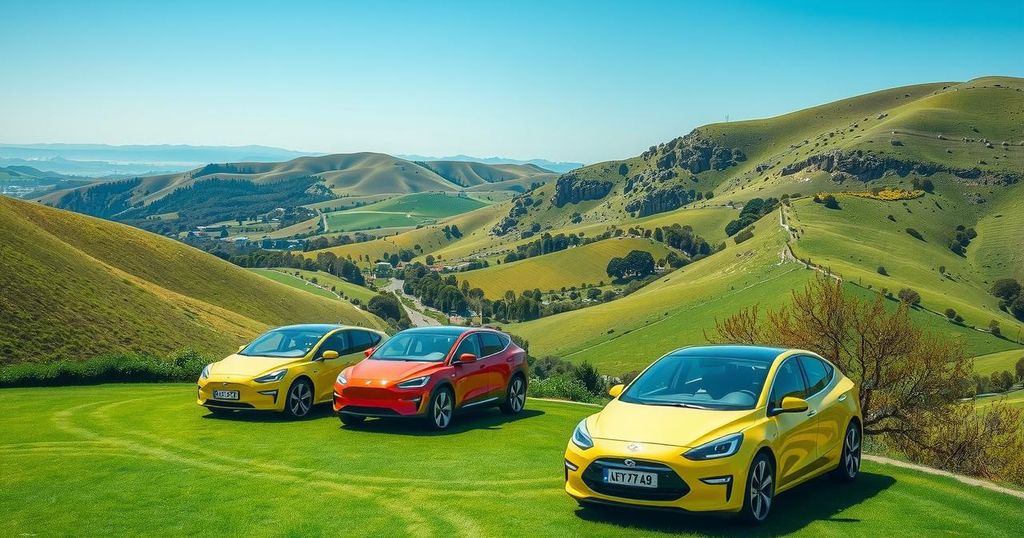Rwanda’s Strategic Shift to Encourage Electric Vehicle Adoption

Rwanda is revising its tax policies on hybrid vehicles, proposing an 18% VAT on hybrids reintroduced after being exempt since 2021. Concerns arise regarding the aging fleet of hybrids, which undermines environmental goals. New legislation under consideration sets excise duties based on vehicle age, promoting the importation of newer models and encouraging electric vehicle adoption.
Rwanda is currently revising its tax policy regarding hybrid vehicles to encourage environmentally friendly transportation, as communicated by Godfrey Kabera, the Minister of State for National Treasury. This proposal, discussed in a parliamentary session, involves reinstating an 18 percent VAT on hybrid vehicles, which had previously been tax-exempt since 2021. The motivation behind this shift is the evident aging of imported hybrids undermining environmental goals, with a notable 45 percent of such vehicles between 10 and 14 years old.
Data from the Rwanda Revenue Authority reveals that from 2020 to 2024, the country imported 7,172 hybrid and electric vehicles, with only 512 classified as electric—representing approximately 7 percent—while over 92.8 percent were hybrids. Minister Kabera emphasized that this trend promotes the acquisition of older vehicles, which contribute to environmental pollution.
Member of Parliament Odette Uwamariya acknowledged the government’s aim to enhance financial capacity but voiced concerns over the removal of VAT exemption for hybrids. She proposed a potential adjustment to support newer hybrid models to alleviate emissions. Kabera clarified that the initial VAT exemption aimed to boost hybrid adoption; however, the long-term reliance on fossil fuels by aging hybrids undermines e-mobility objectives.
The government intends to shift focus toward newer hybrid models as Rwandans become more accustomed to hybrid technology. A bill is underway to amend the 2023 excise duty law, proposing structured duties based on vehicle age. Vehicles up to three years old will incur a 5 percent excise duty, those exceeding three but under eight years will face a 10 percent charge, while vehicles older than eight years will attract 15 percent. The parliament has validated the proposal, which is set to undergo further analysis and scrutiny before a final vote.
Rwanda’s initiative to revise tax policies on hybrid vehicles reflects a commitment to promoting environmental sustainability and addressing the challenges posed by aging vehicle fleets. By introducing VAT and excise duties based on vehicle age, the government aims to incentivize the importation of newer and more efficient models while gradually pushing towards the adoption of fully electric vehicles. This strategic approach seeks to enhance public health and environmental outcomes in the nation.
Original Source: www.newtimes.co.rw




